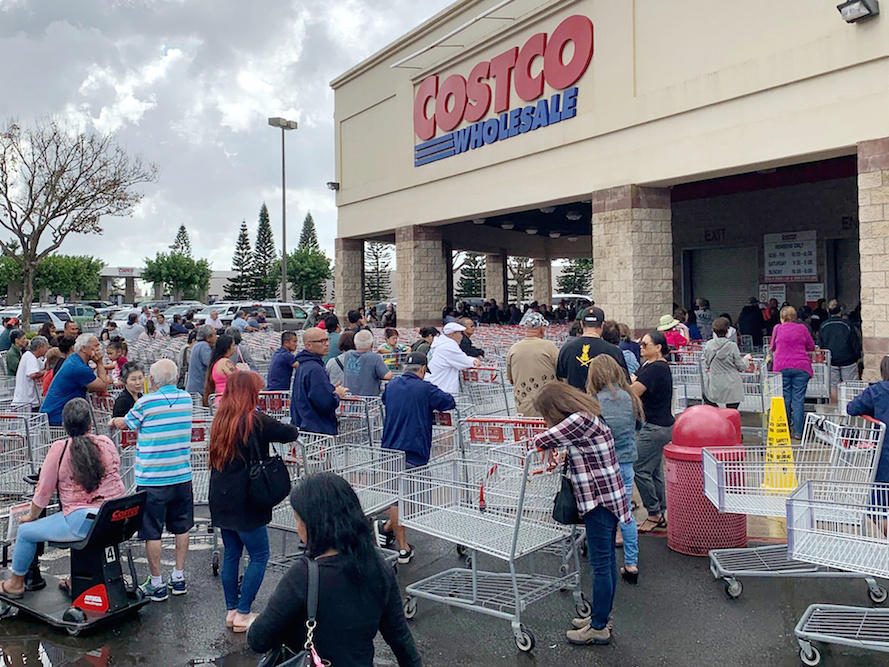- Consumers around the world are flocking to grocery stores to stock up long-lasting food items and basics as panic over coronavirus grows.
- Local authorities and government leaders have told consumers not to panic but many are preparing for the worst.
- These photos show empty shelves and long lines at various grocery stores in the US, Europe, Asia, and Australasia.
- Visit Business Insider’s homepage for more stories.
Shoppers around the world are heading to grocery stores to stock up on food and basics as fear over the spread of coronavirus grows.
While local authorities and government leaders in various parts of the world have urged consumers not to panic and have advised that there is no need to stock up, many are still preparing for the worst.
These photos depict some of the scenes at stores across countries impacted by the virus:
After the first coronavirus death was first reported in Wuhan, China in January and the virus began to spread, reports of empty supermarket shelves in nearby areas started to appear on social media.

Read more: Dire photos show empty shelves inside a Wuhan Walmart as coronavirus fears grow
Shoppers in the cities of Wuhan and Zhudhai shared videos and photographs showing the bare store shelves at local Walmart stores. "Things are getting desperate," one shopper wrote on Twitter, as reported by Business Insider's Bethany Biron.
https://twitter.com/mishzguafa/status/1222431440765210624?ref_src=twsrc%5Etfw
And as the virus spread elsewhere in the weeks that followed, shoppers around the globe started to react in the same way.

Local news organizations reported that Hong Kong supermarkets had begun selling out of certain long-lasting food items and hygiene products in early February after rumors circulated online that supplies could run out because of the slowdown of factories in mainland China.

Source: South China Morning Post
The government insisted that suppliers were not impacted by the virus...

...but consumers continued to stock up.

Some were clearly looking to profit on the panic and hoped that these items would become precious commodities. In one extreme example in mid-February, two robbers stole 600 rolls of toilet paper off a delivery driver in Hong Kong and were later arrested.
It is a similar scene in the supermarkets in Singapore...

...while the local authorities urged residents not to panic, supermarkets shelves were stripped bare.
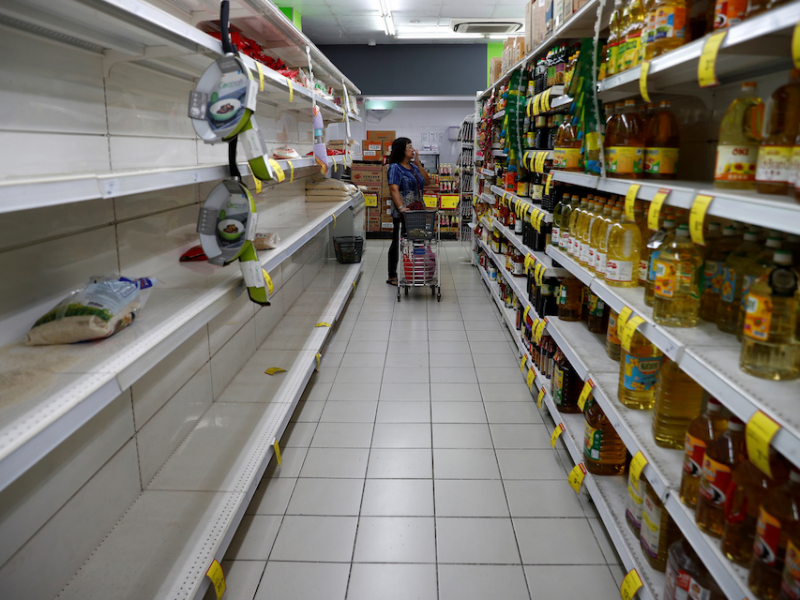
According to Bloomberg, online grocers such as Amazon and RedMart have also seen an uptick in demand.
The same can be said in certain stores in Japan, where the number of reported coronavirus cases currently exceeds 200.
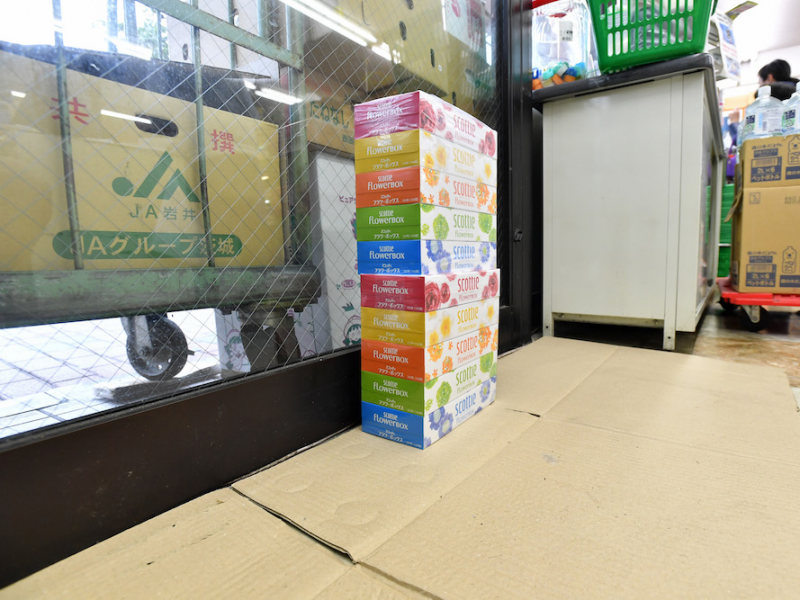
Source: Business Insider
As Japan cancels events and businesses tell employees to work from home, some residents have taken precautionary measures to prepare.
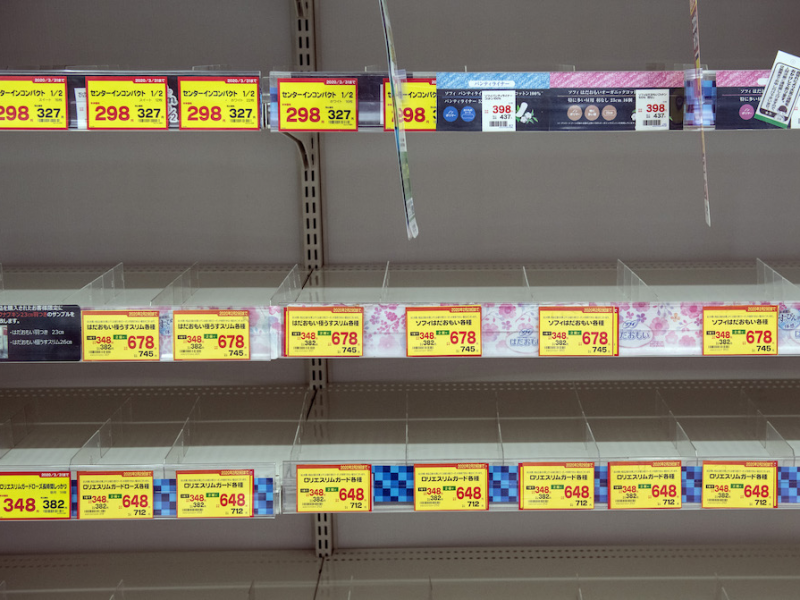
A sudden surge in the number of coronavirus cases in northern Italy at the end of February caused panic among shoppers.
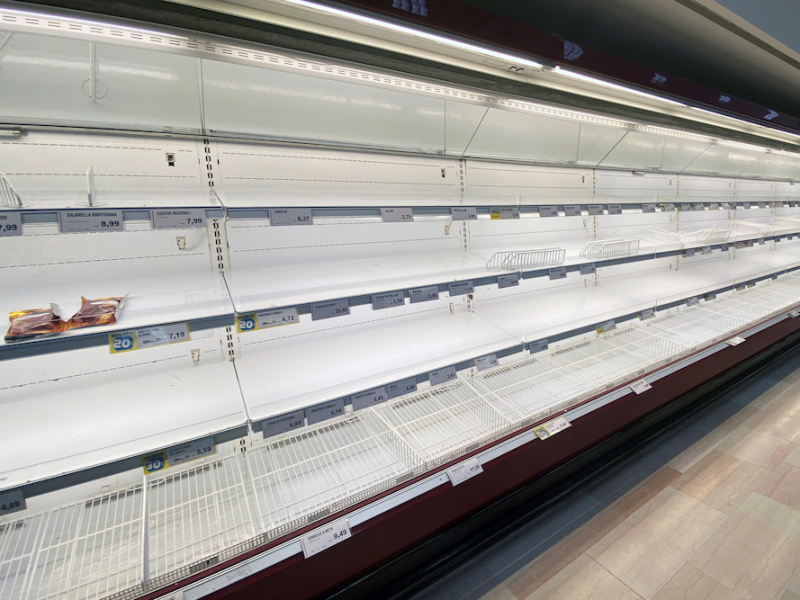
Photos taken by locals in supermarkets in Milan show the empty shelves as customers stocked up on staple items such as pasta, bread, and tinned foods.
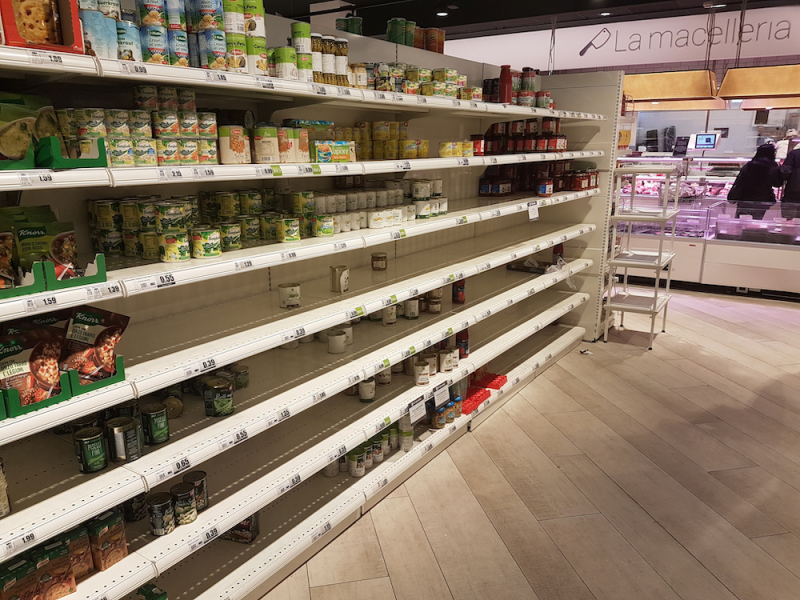
The spike in infections in the area prompted the local authorities to close schools and universities and ban public gatherings across northern Italy.

In early March, concerns about the spread of the virus intensified in the US after the country reported the first coronavirus death on US soil.
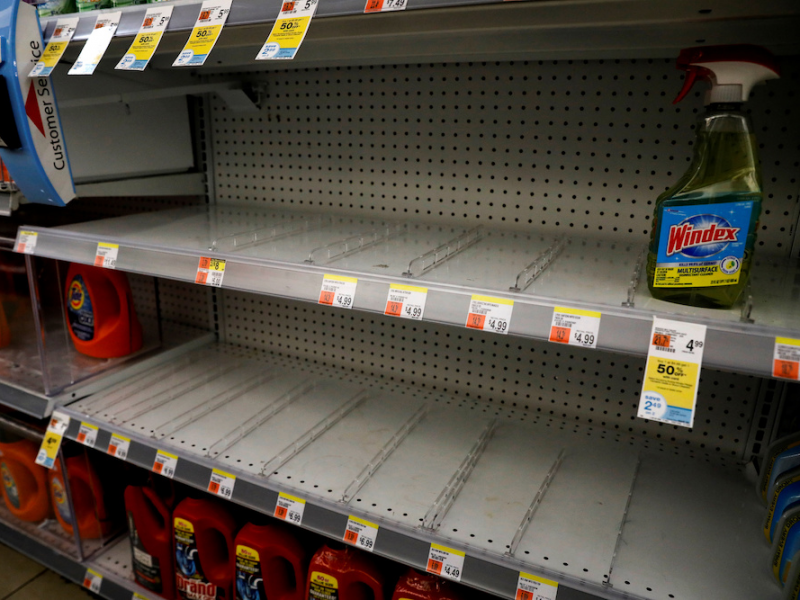
This led to a rush to Costco stores across the US. The warehouse chain is an obvious choice for consumers to stock up in bulk.
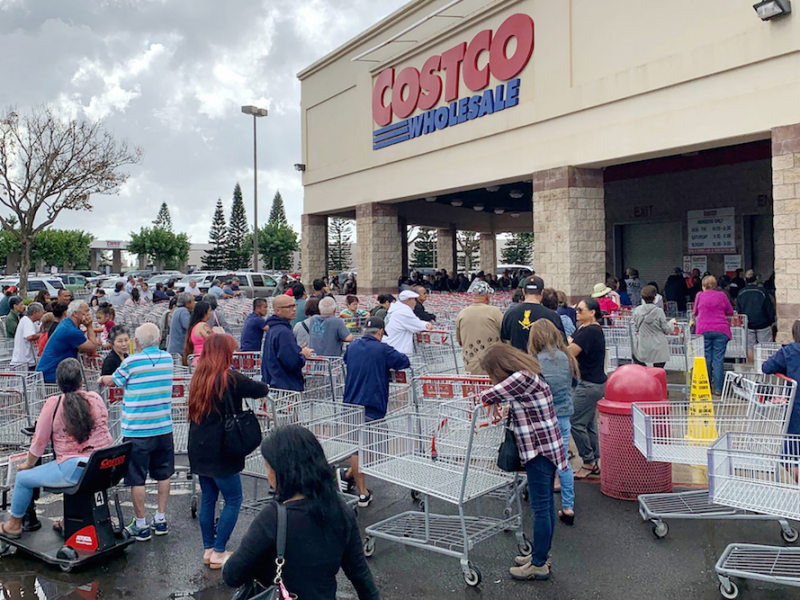
As a result, Costco posted signs over the weekend informing shoppers that it had sold out of certain products.
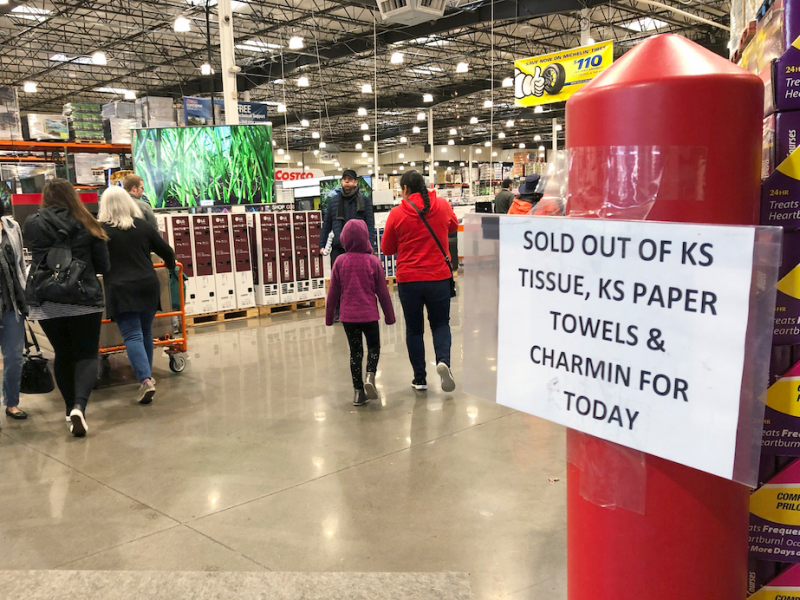
While analysts expect public centers such as shopping malls, restaurants, and movie theaters to suffer from coronavirus, some grocery chains will likely benefit from the panic-buying.

In a recent note, a group of UBS analysts said that Costco is one of the "better-positioned retailers."
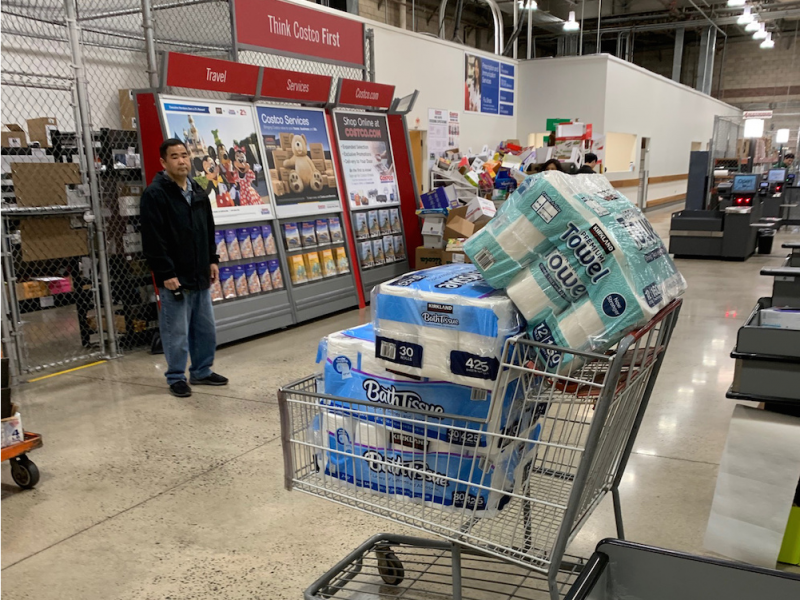
"It's likely to serve as a place of constant stock up for members. As consumers prioritize a dwindling number of trips to stores, Costco will likely be at the top of the list," a group of UBS analysts wrote on Monday.
Although European ministers have also insisted that there is "no reason to panic," shoppers have continued to rush to stores as the number of coronavirus cases continues to mount up.
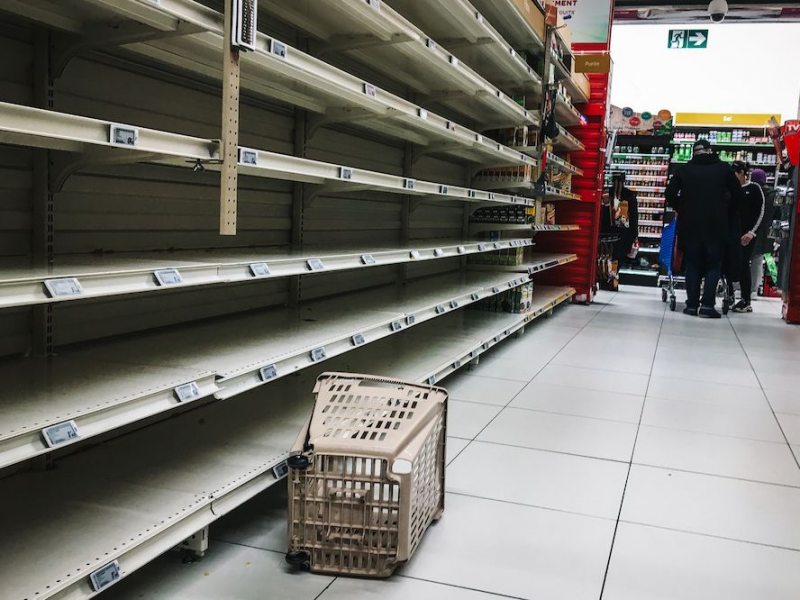
Source: RFI
The German word Hamsterkauf, which is used to describing panic-buying, has been trending on social media over the past few days.
https://twitter.com/Selicious12/status/1233459082478202883?ref_src=twsrc%5Etfw
Source: Quartz
According to German news outlet Der Spiegel, two of the country's largest supermarket chains – Lidl and Aldi – have both acknowledged an increase in demand but assured customers that they are prepared for this.
Lidl bei mir... #allebekloppt #Hamsterkauf pic.twitter.com/KmbSbteqzI
— nomi 🇮🇱 (@nomi19) February 29, 2020
Source: Der Spiegel
Australian consumers were accused of "overreacting" by an infectious disease expert, who told The Guardian that there is no need to panic buy.
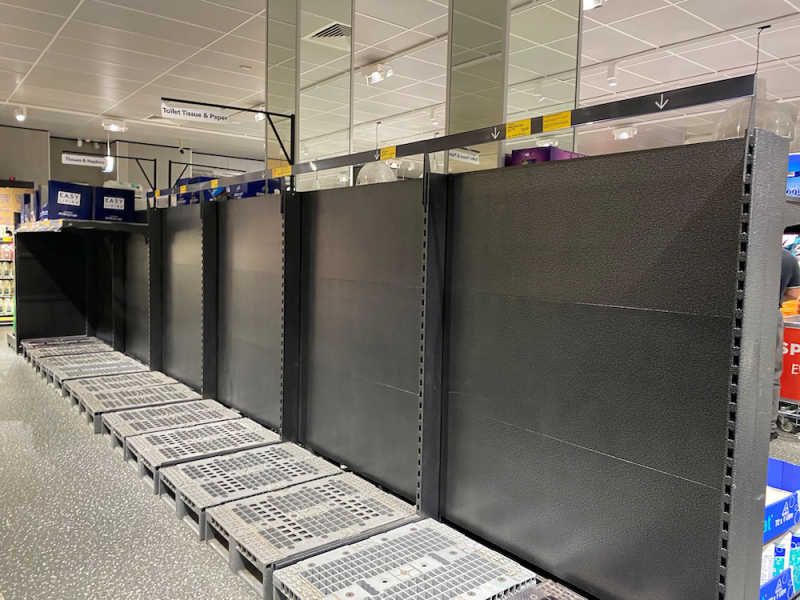
"People are really overreacting to this. We need to restore some balance here. In Australia, we produce more food than we can eat because we are a net exporter of food. You're not going to run out of food, you might not have the same choice of foods but you won't be left without," Peter Collignon, a professor who has worked as an adviser to the World Health Organization, told The Guardian.
A spokesperson at one of Australia's largest supermarket chains, Woolworths, told The Guardian that increased demand for long-life food and healthcare products had led to temporary shortages but that these items would be restocked.
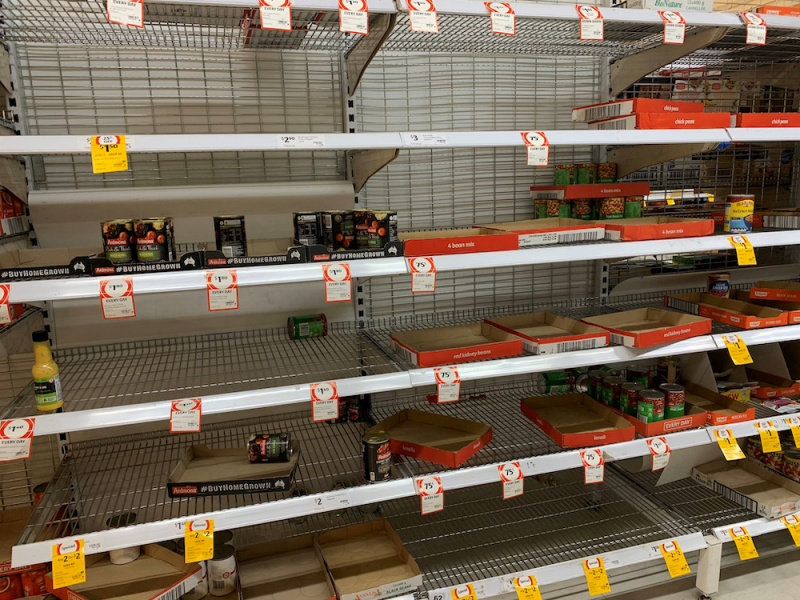
Despite this, Woolworths rationed the amount of toilet paper customers could buy while it boosts stock levels.
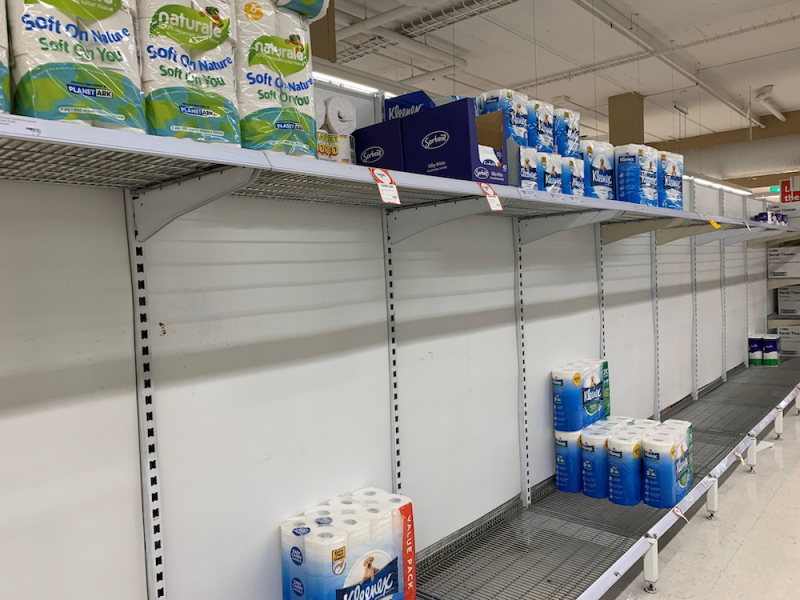
Source: The Guardian

